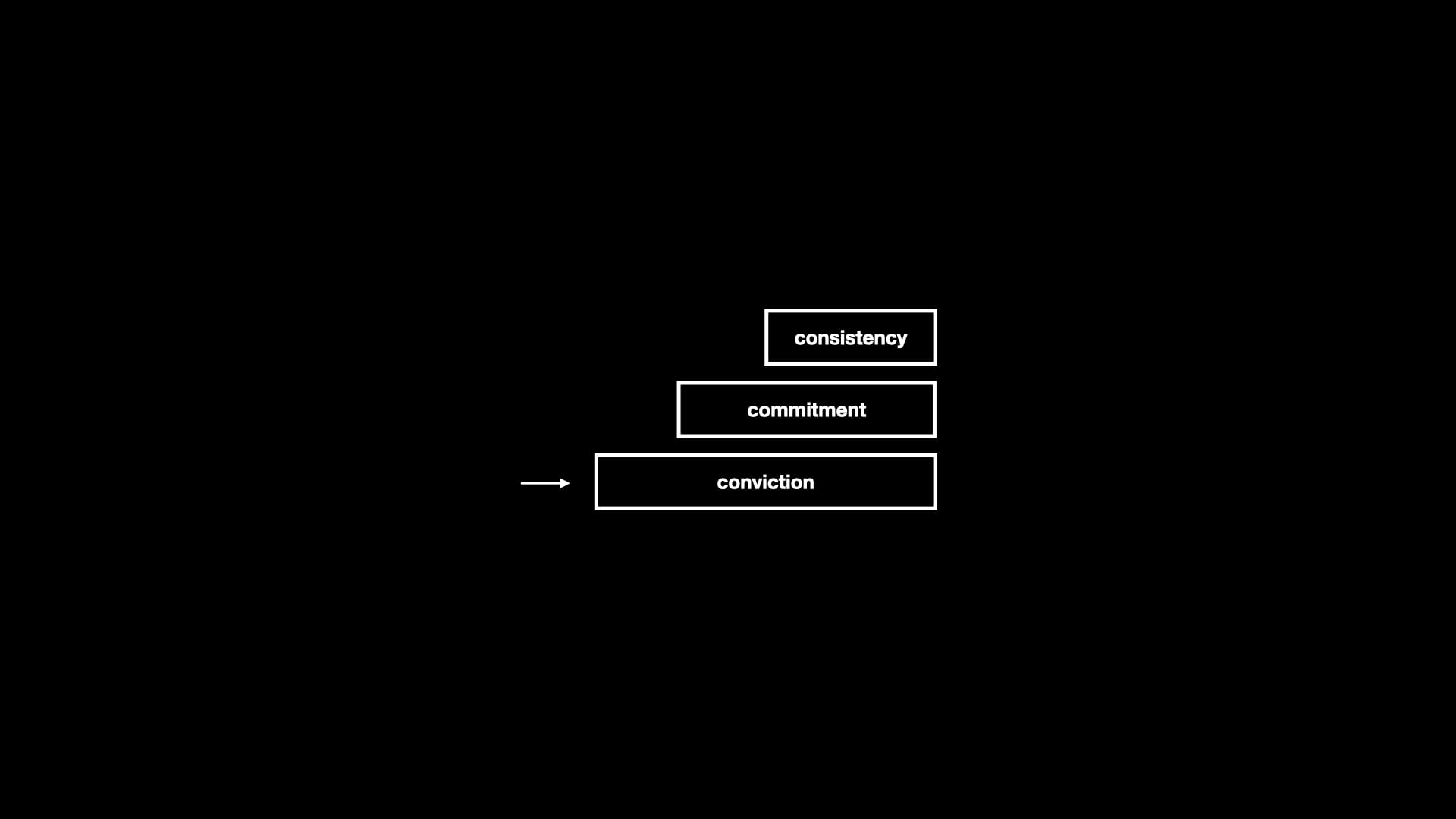conviction

conviction
I've watched countless founders go through the same pattern: start energized, hit the inevitable obstacles, then either push through or fade away.
It’s a common pattern. The glory and glamour of entrepreneurship wears off real quick once you get over the honeymoon phase. Because now you’re in it. And people around you got used to it. Nothing new about it anymore, so it gets tough - and lonely - when reality kicks in.
Now, I’ve noticed a difference between founders who break and founders who make it.
And what's that? Conviction. Real conviction. The kind that looks like naive optimism, delusional drive, hopeless hustle. Real fucking energy that is felt in the room—even on Zoom.
When was the last time you felt like that? Believing in something so deeply that no one can touch you. That’s the kind of conviction I’m talking about here.
Because beyond the honeymoon phase of starting a business, it's difficult to keep going. Especially without this kind of conviction. Abandoning ship at the first sign of rough waters is much easier.
So let’s break down how conviction works. Real conviction, which makes things fall into place without relying on fleeting sensations like motivation.
#1 Conviction
What I’m talking about here is true unwavering belief in something—anything.
Could be a problem space, a group of people, or a very specific problem to be solved. Even a direction the world is headed that you want to change for the better. It’s that thing you can’t stop thinking about. The thing you’d work towards on nights and weekends, when no one's watching, when no one understands. Even when people laugh at you. This is key. Feeling this intrinsic drive to do something, to act.
Also, things that would normally stop most won’t stop you. This could be lack of experience or expertise. But no, your thing is just too damn important. And you care, for real. That's conviction.
How do you know if you have it? I like to ask myself this: “If I knew this would take 10x longer than expected, would I still do it?” If the answer is yes, you got it.
#2 Commitment
Now once you have this level of conviction about something, it’s much easier to commit. Commit to the cause. Commit to figuring things out, one way or another.
Commitment here means you’ll do something about it. Inaction is simply not an option, because your conviction is strong. But conviction alone won’t cut it. Plenty of capable people remain dreamers. Conviction paired with commitment, however, moves you forward, sets you in motion. Forward motion. That’s what commitment does. It drives action.
And committing to action is simple, really.
Here’s how I commit to action when it seems impossible: I block 30 minutes today to take one small action toward my conviction. No planning, just action. Think about the smallest step you can take, block 30 min and get it done. Progress.
#3 Consistency
Once you have committed yourself to take action, and you start making progress, however tiny, everything begins to fall into place. You wake up and take action. Because you’ve got conviction. And you’ve made the commitment. So consistency naturally follows.
You find time when there seemingly is none. Because action is where it’s at, and you’ll do what it takes to get the job done. To make progress. To make things work. Even when setbacks occur, which they inevitably will. You keep going because you have conviction. True conviction. And you’re committed. Consistent action becomes the living proof of that.
I like to set up what I call a minimum viable daily action. An action so small I can’t say no. One email. One line of code. One DM. One call. Why? Because small actions compound faster than good intentions.
I’m sure you could DM someone today to move the needle.
So why don’t ya?
This is the foundation
Conviction and true belief, committing to the cause, and consistent action. That’s how you make it happen—that’s how you start, go and grow.
Sure, there’s a lot you can add on top, but this is the psychological foundation before tactics and strategies matter.
At least if you’re in it for the long run.
Before you go about your day, ask yourself:
- What do I believe in so deeply that I’d defend it to anyone? And, what problem makes me angry or excited enough to actually do something?
- What tangible action am I taking today that proves my commitment? Not tomorrow, not someday—no, one tiny action, today.
- What’s a minimum viable daily action I can maintain even on my worst days?

